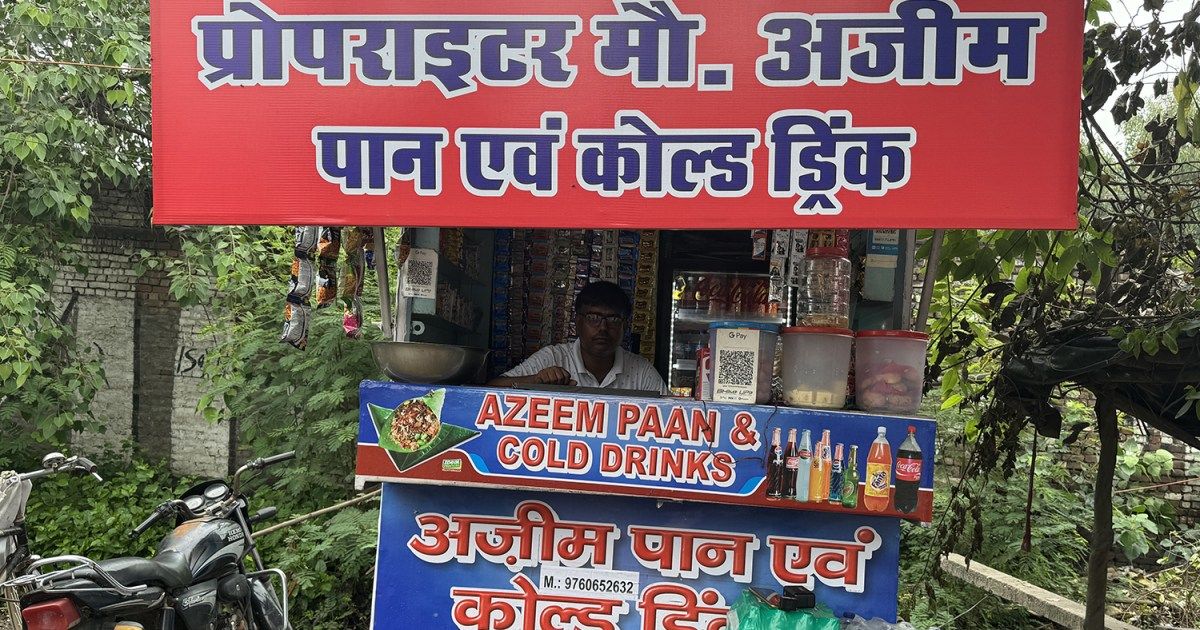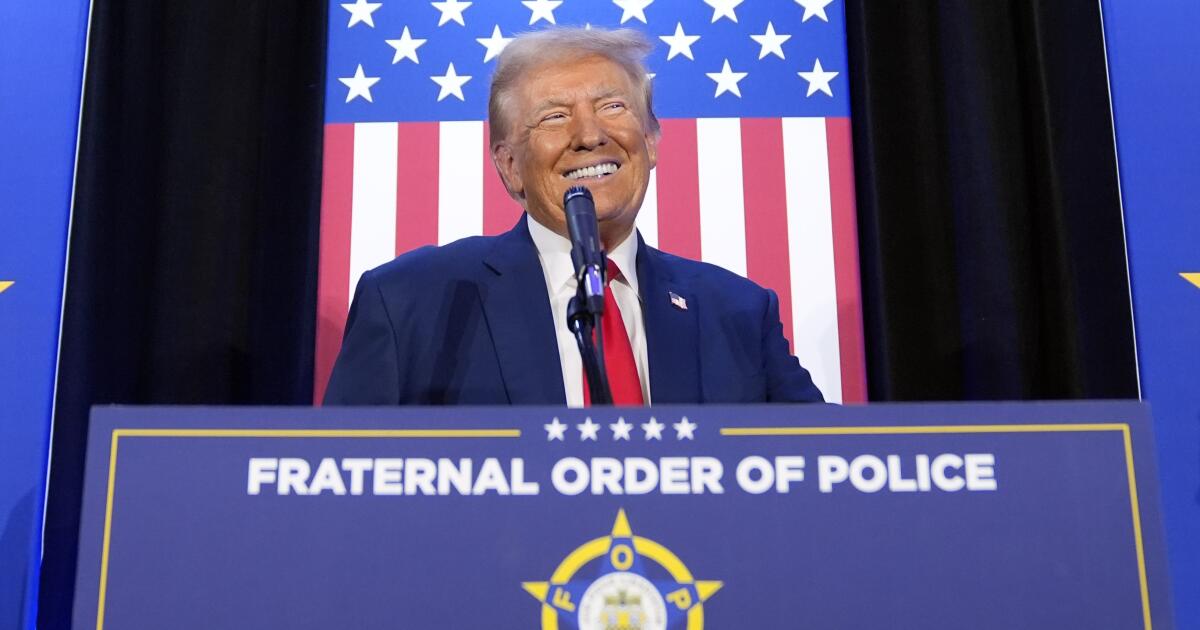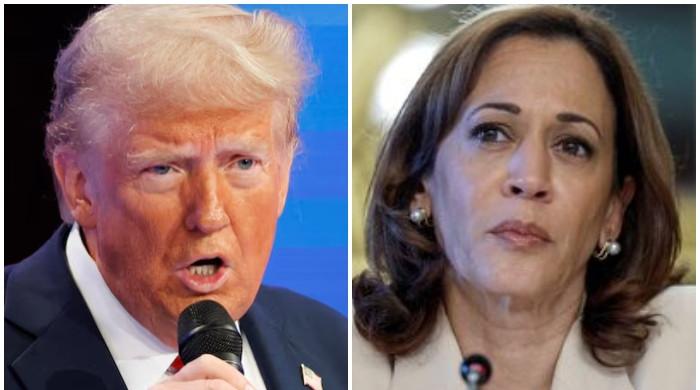Muslims continue to be persecuted in India despite the weakening of the Hindu nationalist Bharatiya Janata Party (BJP), the source of anti-Muslim hatred and violence, in the recent elections.
The BJP failed to secure a majority and was only able to form a government with the support of several regional parties that declare themselves secular. It was hoped that having fewer MPs in the Indian Parliament would chastise the BJP and its new “secular” allies and act as a brake on the party’s anti-Muslim policies.
Barely a month after the formation of the new government, those hopes have already been dashed. Authorities in BJP-led states, including the police and civil administration, have begun inventing new methods to harass, humiliate and attack Muslims after the elections.
The most recent example comes from Uttar Pradesh, the BJP-ruled state that sends the largest number of MPs to Parliament.
Earlier this month, state police issued orders requiring restaurants and even street food stalls along a route taken by thousands of Hindu pilgrims each year to post the names of their owners and employees on signs.
Police said the order was given to “help pilgrims” who travel on foot to holy places during the holy month of Shravan to avoid buying food from shops that may serve items that do not conform to the sacred conduct they are required to follow on their pilgrimage.
The states of Uttarakhand and Madhya Pradesh were quick to follow suit, issuing similar orders, requiring all commercial establishments to prominently display the names of their owners and employees. Authorities in the city of Ujjain in Madhya Pradesh, a major Hindu pilgrimage destination, went so far as to say that those who failed to comply would face heavy fines.
Of course, this is not just an innocent policy to “help” Hindu pilgrims maintain their vegetarian diet, but a clever way to identify Muslim-owned establishments and ensure that Hindus do not give them business.
Officials deny the policy discriminates against Muslim businesses, saying it is “religion-neutral.” They say the new requirement does not target any particular religious group, but they do not explain how knowing the names of a restaurant’s owners and employees helps Hindu devotees decide whether to serve food that meets their dietary needs.
Authorities claim that in the past restaurant owners “hid their identity” and that led to “confusion” in the minds of Hindu devotees, which in turn caused “law and order problems.” What the police mean by this is that some Muslim business owners gave their restaurants Hindu-sounding names and when some of the pilgrims eventually discovered that the owners or employees were actually Muslims, they resorted to violence. The police’s argument is that making it mandatory for all business owners and restaurant employees to announce their names in advance would prevent disorder and violence.
It is a strange argument. If it is the Hindus who are causing the disorder, because of their perception of the identity of the owner and employees of an establishment, why should it be the Muslims who take action to prevent further attacks? And how could the disclosure of the identities of the owners and employees of a particular establishment remove the confusion from the minds of the Hindus?
For example, McDonald's offers franchises to both Muslims and Hindus across India, but all of its branches serve exactly the same food. Is there any difference, from the customers' point of view, between a McDonald's branch owned by a certain Ram and another owned by a certain Rahim Ali? Does the identity of the owner or waiters at a particular branch in any way affect the content of the food on offer?
This new rule is obviously not designed to help Hindu pilgrims avoid consuming foods that contradict the sacred conduct they are expected to follow in some inexplicable confusion, but to encourage them not to visit establishments owned by Muslims with the implicit assumption that any food they consume in such a place might somehow contaminate their bodies.
To bolster their arguments, some supporters of the new rule circulated with renewed vigour the old propaganda that Muslims “sell food after spitting it out” and “deliberately mix impure things in food to defile Hindus”. They tried to justify the police orders by saying that Muslims simply cannot be trusted to follow food hygiene rules and that Hindus therefore have a right to know whether a restaurant is owned by one of them.
These rules forcing restaurant and food stall owners to reveal their identity are, in essence, nothing more than a state-sponsored incitement to Hindus to boycott Muslim shops, or even Hindu-owned ones that dare to employ Muslim workers.
The order unsurprisingly caused quite a stir, but the Uttar Pradesh government doubled down and said it would apply the requirement not just to businesses on the pilgrimage route but to all establishments in the state. Later, other states followed Uttar Pradesh's lead and also expanded the scope of their orders.
The matter was quickly taken to the Supreme Court, where the judges tried to understand the police order. The judges wondered whether the authorities would also want to know the identity of the farmer who had grown the wheat or rice used to make the food sold on the pilgrimage routes. After all, Ramsharan, a Hindu, can perfectly sell vegetables grown by Rahmat Ali, a Muslim. How far can one go to ensure the sanctity of food? One of the judges went so far as to share his experience of choosing a restaurant owned by a Muslim over one owned by a Hindu, as it ensured international standards of hygiene.
Ultimately, the Supreme Court ruled that restaurants cannot be forced to display the names of their owners and suspended the controversial police orders. The justices said that while restaurants could be expected to indicate the type of food they serve, including whether it is vegetarian, they “should not be compelled” to display the names and identities of their owners or employees.
Despite being suspended, at least for the moment, the police orders targeting restaurant owners and employees sent a clear message to Indian Muslims: Indian authorities will never miss an opportunity to persecute them for their identity.
In fact, the BJP’s power and authority is tied to the continued persecution of Muslims. If they cannot kill many Muslims, they will push them into destitution through attacks on their livelihoods, all to communicate to their Hindu supporters that they are fighting to protect their supremacy in society.
Therefore, while forcing companies to reveal the identity of their owners, the authorities banned halal certification. Practicing Muslims need to know whether the products they use that contain animal products (e.g. cosmetics) are halal or not. It is important for practicing Muslims to know whether prohibited alcohol or animal-related material has been used in the manufacturing or processing of the medicines or cosmetics they use.
What objection can be raised to Halal certification? It does not interfere with the religious practices of non-Muslims. It does not affect the lives of Hindus in any way. Does the vision of Halal certification taint the BJP supporters?
What could be the reason for banning halal certification and forcing Muslim shop owners to reveal their identities, apart from making life more difficult for Muslims?
This new cycle of violence and persecution against Muslims in India has baffled many analysts, who thought that the BJP's diminished strength in Parliament would force it to introspect and discipline itself, but instead it has become more brazen and more violent.
This is widely believed to be the result of an internal power struggle within the BJP. Some argue that Prime Minister Narendra Modi is trying to shift the responsibility for electoral defeats to state leaders such as Uttar Pradesh Chief Minister Yogi Adityanath. By stepping up the persecution of Muslims in his state, the argument goes, Adityanath is conveying that he is actually crueller and more committed to the cause than Modi, and therefore deserving of his office. There is likely some truth to this line of argument. Not just in Uttar Pradesh, but across BJP-led states, it appears that authorities are competing with each other to increase pressure on Muslims to prove their Hindu nationalist credentials and consolidate their positions within the party. Sadly, when it comes to the BJP, even big electoral defeats and internal power struggles seem to translate into more violence against Muslims rather than more thoughtful governance.
Today we are witnessing a renewed attack on Muslims in India, because the BJP’s ideology is essentially anti-Muslim and anti-Christian and it cannot survive without inflicting violence on these minority groups. Muslims and other minorities will continue to be attacked in India as long as the BJP remains in a position of power, alone or within a coalition government. However, what is more worrying today, beyond the party’s continued instigation of violence against Muslims, is the new willingness of all state institutions, such as the police and civil administration, to carry out these ideologically motivated attacks. Completely aligned with the BJP’s positions, they are now proactively harassing and persecuting Muslims and discriminating against them without being forced to do so by political leaders. This means that Muslims will face more immediate and serious threats in their daily lives in this new era in India.
The views expressed in this article are those of the author and do not necessarily reflect the editorial stance of Al Jazeera.












